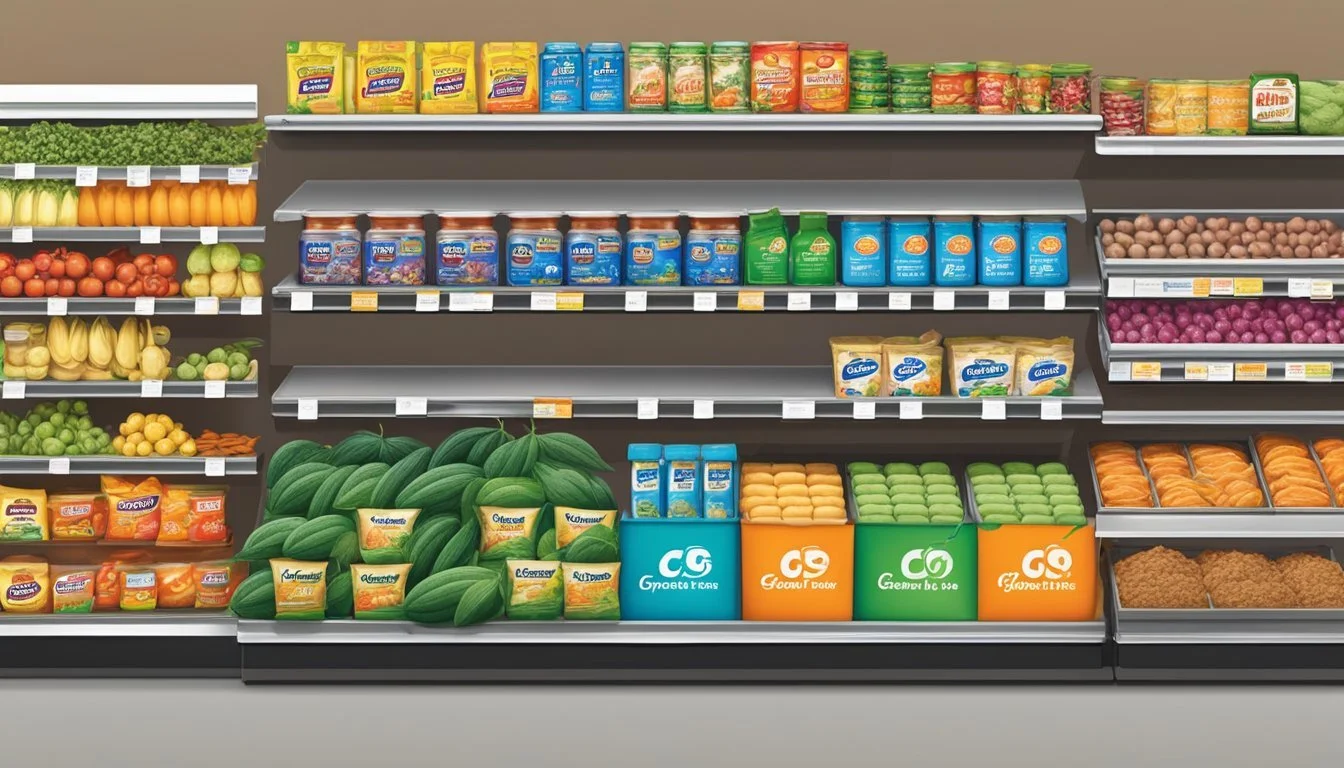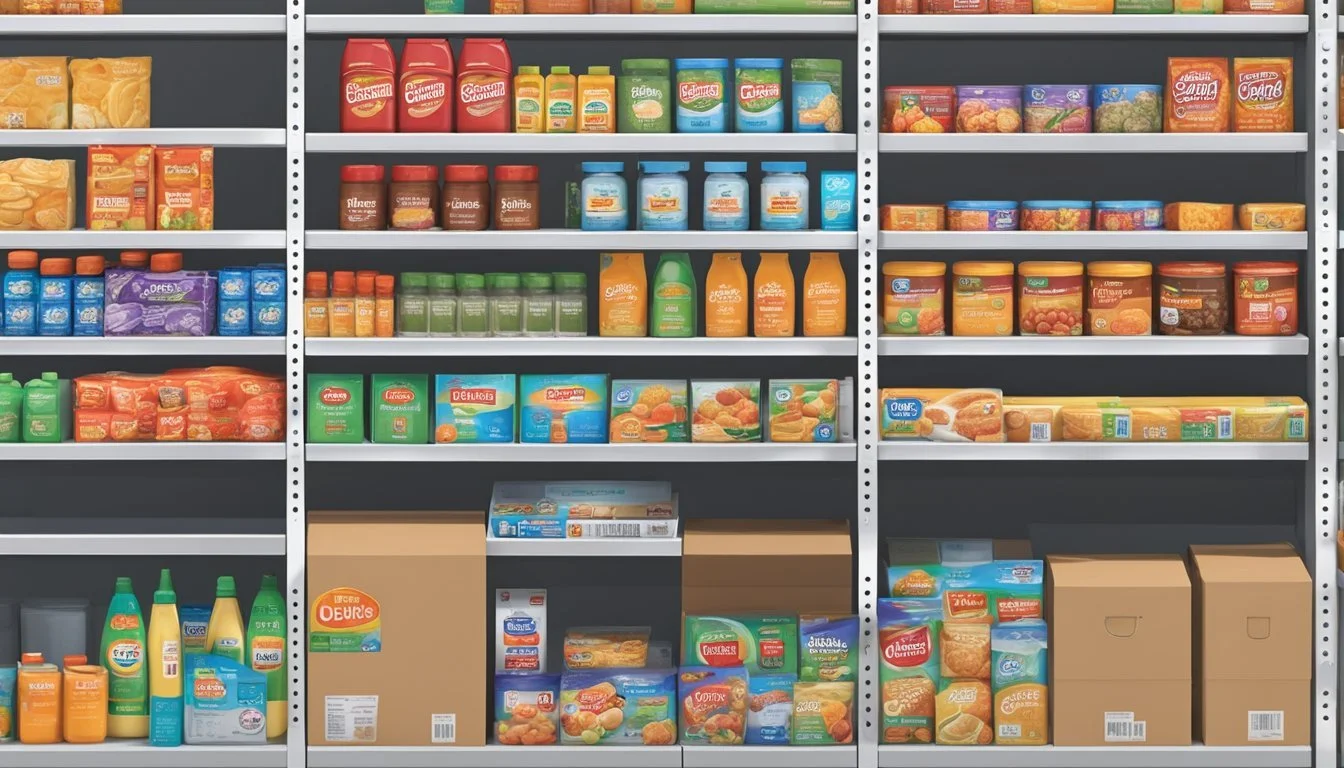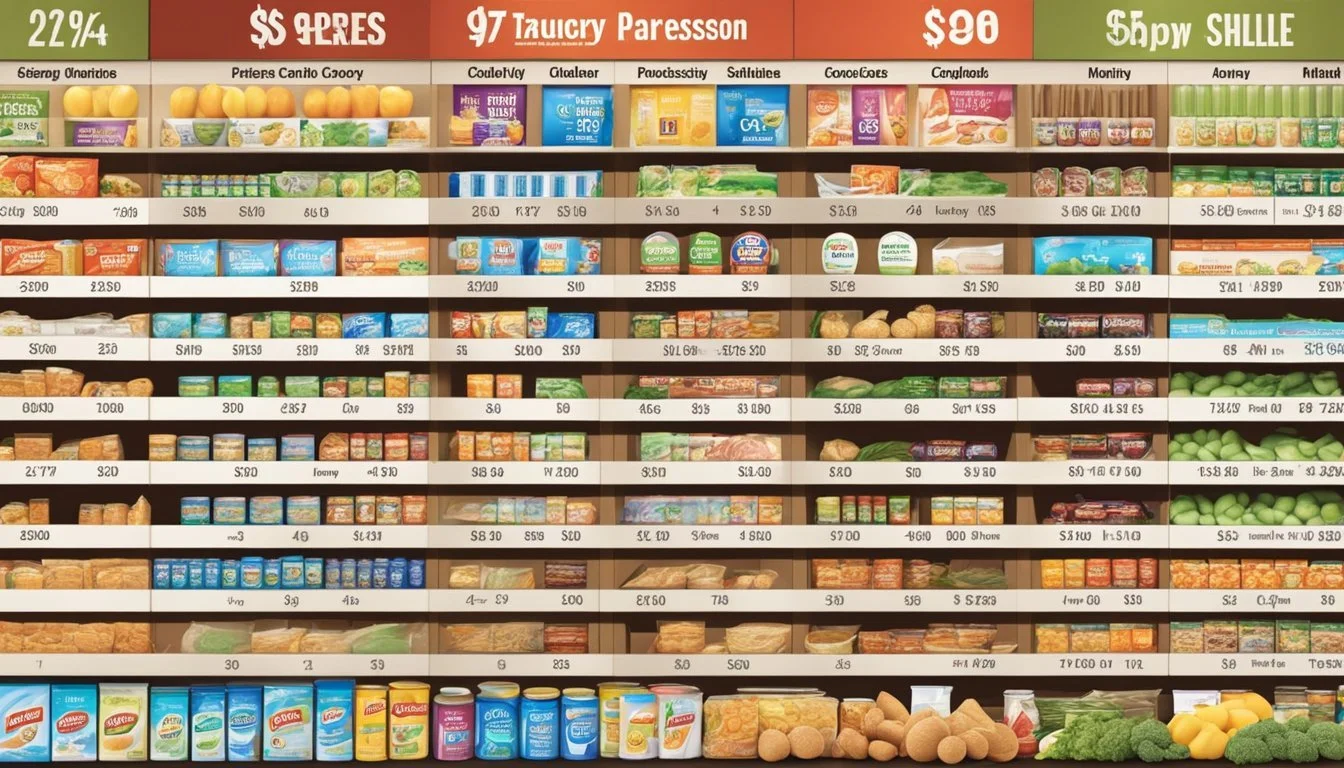Is Brookshire Grocery Company Cheaper Than Family Dollar?
A price comparison analysis
When comparing grocery prices, shoppers often wonder how regional chains stack up against national discount stores. Brookshire Grocery Company, a Texas-based supermarket chain, and Family Dollar, a nationwide discount variety store, both offer grocery items at competitive prices.
Generally, Family Dollar tends to be cheaper than Brookshire Grocery Company for many basic grocery items. However, the price differences can vary depending on specific products, sales, and locations. Family Dollar focuses on offering everyday low prices on a limited selection of groceries, while Brookshire's provides a fuller supermarket experience with a wider range of products and services.
Savvy shoppers may find the best value by combining purchases from both stores. While Family Dollar often has lower prices on packaged goods and household essentials, Brookshire's typically offers better deals on fresh produce, meats, and bakery items. Additionally, Brookshire's weekly sales and loyalty programs can sometimes beat Family Dollar's prices on select items.
Company Profiles
Brookshire Grocery Company and Family Dollar are two distinct retail chains with different focuses and market positions. Both operate in multiple states and serve diverse customer bases.
Brookshire Grocery Company Overview
Brookshire Grocery Company is a regional family-owned grocery chain based in Texas. Founded in 1928, the company operates over 200 stores across Texas, Louisiana, Arkansas, and Oklahoma. Brookshire's stores include several brands:
Brookshire's
Super 1 Foods
Spring Market
The company runs four distribution centers to support its retail operations. Brookshire Grocery Company is known for its focus on customer service and community involvement. With annual revenues exceeding $1 billion, it remains a significant player in the regional grocery market.
Family Dollar Overview
Family Dollar is a national discount store chain. Founded in 1959, it operates thousands of stores across the United States. The company specializes in offering a variety of merchandise at low prices, including:
Household goods
Food items
Clothing
Personal care products
Family Dollar targets budget-conscious shoppers in urban and rural areas. In 2015, Dollar Tree acquired Family Dollar, creating one of the largest discount retailers in North America. Family Dollar stores are typically smaller than traditional supermarkets, focusing on convenience and affordability for their customers.
Price Comparison Criteria
Evaluating prices between Brookshire Grocery Company and Family Dollar requires examining multiple factors. These include the range of products offered, their quality, and available discounts.
Product Selection
Brookshire Grocery Company typically offers a wider variety of grocery items compared to Family Dollar. Their selection includes fresh produce, meats, deli items, and a range of organic options. Family Dollar, on the other hand, focuses more on packaged goods and household essentials.
Brookshire's often stocks specialty items and local products, while Family Dollar tends to carry national brands and generic alternatives. For staples like rice, frozen foods, and canned goods, both stores usually have comparable options.
Quality of Goods
Brookshire Grocery Company generally provides higher quality perishables such as fruits, vegetables, and meats. Their produce section is often more extensive and better maintained.
Family Dollar's food items are typically packaged goods with longer shelf lives. While these products meet safety standards, they may not always match the freshness or quality of Brookshire's offerings.
For non-perishable items like cereals or cleaning supplies, the quality difference is less noticeable between the two stores.
Sales and Discounts
Both retailers employ different strategies for sales and discounts. Brookshire Grocery Company often runs weekly specials on fresh items like produce and meats. They may offer loyalty programs or digital coupons for additional savings.
Family Dollar frequently uses a low everyday price model, with occasional promotions on specific items. They might have clearance sections for further discounts.
Brookshire's sales can lead to significant savings on higher-priced items, while Family Dollar's consistent low pricing may benefit frequent shoppers of basic goods.
Locations and Accessibility
Brookshire Grocery Company and Family Dollar have distinct geographical footprints. Brookshire's focuses on serving communities in select Southern states, while Family Dollar maintains a broader national presence.
Brookshire's Presence in the Southern States
Brookshire Grocery Company operates primarily in Texas, Louisiana, Arkansas, and Oklahoma. The company's headquarters is located in Tyler, Texas, where it was founded in 1928. Brookshire's has a strong presence in East Texas cities like Tyler, Palestine, and Corsicana.
The grocer also serves customers in North Texas communities such as Plano, Allen, McKinney, and Rockwall. In recent years, Brookshire's has expanded its reach to include locations in Granbury and other parts of Texas.
While not as widespread as some national chains, Brookshire's strategic placement allows it to cater to both urban and rural communities across its four-state territory.
Family Dollar's National Reach
Family Dollar boasts a much wider geographical presence compared to Brookshire's. With thousands of stores across the United States, Family Dollar operates in 46 states and the District of Columbia.
The discount retailer maintains a significant number of locations in Texas, Arkansas, Louisiana, and Oklahoma - overlapping with Brookshire's territory. However, Family Dollar's reach extends far beyond these states, serving customers from coast to coast.
Family Dollar stores are often found in urban neighborhoods, small towns, and rural areas. This widespread distribution allows the company to provide accessible shopping options to a diverse range of communities across the country.
In-Store Experience
The in-store experience at Brookshire Grocery Company and Family Dollar differs significantly in terms of ambiance and customer service. These factors can greatly influence shoppers' overall satisfaction and loyalty.
Store Cleanliness and Layout
Brookshire Grocery Company stores typically maintain a higher standard of cleanliness compared to Family Dollar locations. The aisles are usually wider, allowing for easier navigation with shopping carts. Brookshire's often features a more organized layout, with clear signage directing customers to specific departments.
Family Dollar stores, on the other hand, tend to have a more compact layout. While this can make finding items quicker, it may feel cramped during busy periods. The organization of products can sometimes be less intuitive, requiring customers to spend more time searching for specific items.
Customer Service
Brookshire Grocery Company places a strong emphasis on customer service. Staff members are generally more readily available to assist shoppers with queries or product locations. The company's focus on local communities often translates to a more personalized shopping experience.
Family Dollar typically operates with a leaner staff model. This can result in longer wait times at checkout counters during peak hours. While employees are usually helpful when available, the level of personalized attention may be less consistent compared to Brookshire's.
Both retailers offer self-checkout options in some locations, which can help reduce wait times for customers with smaller purchases.
Market Position and Business Performance
Brookshire Grocery Co. occupies a significant position in the regional grocery market across Texas, Louisiana, Arkansas, and Oklahoma. The company's strategic focus on customer service and community engagement has contributed to its growth and reputation.
Revenue and Growth
Brookshire Grocery Co. operates over 200 retail stores under various banners, including Brookshire's, Super 1 Foods, and FRESH by Brookshire's. This extensive network has helped the company establish a strong presence in its target markets. While specific revenue figures are not publicly disclosed, the company's recent $33 million investment in employee wages suggests financial stability and growth.
The grocery chain competes with larger national retailers like Walmart and Kroger, as well as regional players such as H-E-B and Aldi. Brookshire's expansion into new territories and acquisition of Reasor's stores in Oklahoma indicate a strategy for market growth and increased market share.
Brand Reputation
Brookshire Grocery Co. has built a reputation as a family-owned business with strong community ties. The company's focus on employee satisfaction, evidenced by its significant wage increases, likely contributes to positive customer experiences and brand loyalty.
The retailer differentiates itself through its various store formats, catering to different consumer segments. FRESH by Brookshire's, for example, targets customers seeking premium and specialty products, while Super 1 Foods aims at value-conscious shoppers.
Brookshire's commitment to local communities and employee welfare has helped establish a positive brand image, potentially giving it an edge over some national chains in its operating regions.
Consumer Trends and Preferences
Recent shifts in consumer behavior have influenced grocery shopping patterns. Price remains a key factor, but other elements like product quality and store experience have gained importance.
Healthy and Organic Options
Health-conscious consumers are driving demand for nutritious and organic products. Many shoppers now prioritize fresh produce, whole grains, and natural ingredients. Organic options have expanded beyond fruits and vegetables to include dairy, meats, and packaged goods.
Grocery stores are adapting by dedicating more shelf space to these items. Some have created dedicated healthy living sections. Labels highlighting nutritional benefits and organic certifications are becoming more prominent.
Convenience Shopping
Time-pressed consumers seek efficient shopping experiences. Many prefer stores with user-friendly layouts and quick checkout options. Online ordering and curbside pickup have gained popularity, especially among busy families.
Meal solutions are another growing trend. Pre-prepared dinners and meal kits cater to those wanting home-cooked meals without extensive preparation. Some stores now offer in-house dining areas or cafes for added convenience.
No-frills discount stores continue to attract budget-conscious shoppers. These outlets often feature a smaller selection of staple items at competitive prices.
Concluding Analysis
Brookshire Grocery Company (BGC) and Family Dollar operate in different segments of the retail market. BGC focuses on full-service grocery stores, while Family Dollar is a discount variety store chain.
Price comparisons between these two retailers can be challenging due to their different product offerings. BGC typically provides a wider range of fresh produce, meats, and bakery items.
Family Dollar often offers lower prices on packaged goods and household items. Their limited selection of groceries tends to be competitively priced.
BGC's pricing strategy varies by location and competition. In areas where they compete directly with major chains like Walmart, BGC may adjust prices to remain competitive.
Both retailers have strong presences in Texas, where BGC was founded by Wood T. Brookshire. BGC operates over 200 stores across Texas, Louisiana, Arkansas, and Oklahoma.
Customer service and store atmosphere differ between the two. BGC stores generally offer a more traditional grocery shopping experience with additional amenities.
Loyalty programs and weekly sales can impact overall value for shoppers. BGC's loyalty card may provide additional savings opportunities for regular customers.
For a comprehensive price comparison, shoppers should consider their specific grocery needs, shopping frequency, and nearby store locations of both retailers.









